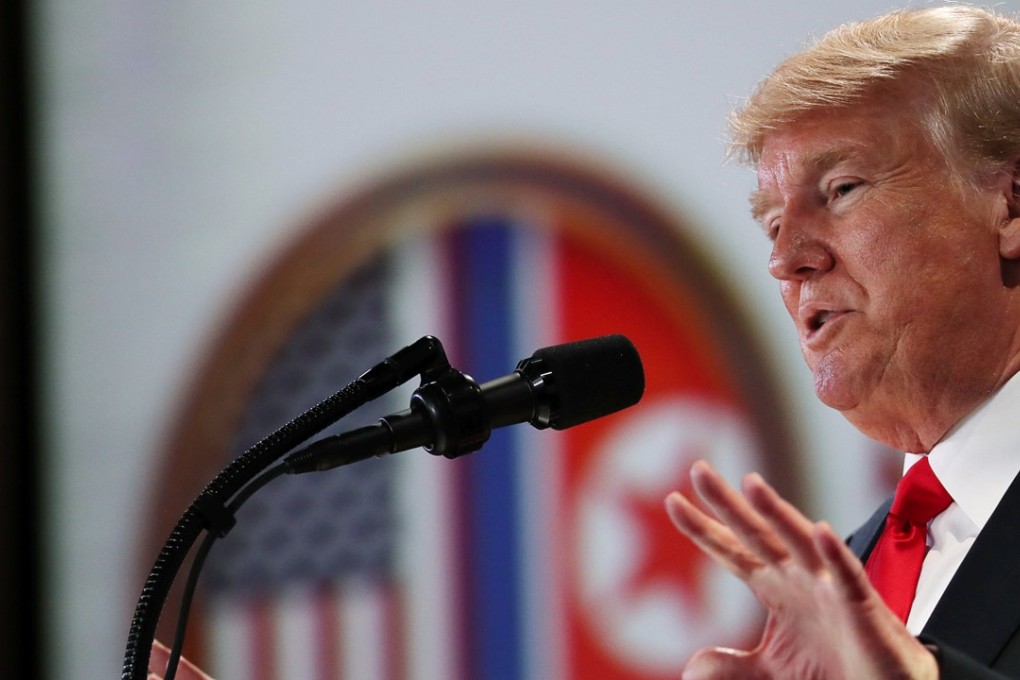Advertisement
Donald Trump searches for a lasting foreign policy legacy at summit with Kim Jong-un in Singapore
Andrew Hammond says if it unfolds as hoped, Trump’s new deal with the North Korean leader would provide some substance to a foreign policy platform that has thus far been more about tearing down the achievements of his predecessors. However, Trump is not the first to seek a resolution on the Korean peninsula, and may not be the last to fail
Reading Time:3 minutes
Why you can trust SCMP
0

US President Donald Trump and North Korean Supreme Leader Kim Jong-un emerged from the much-anticipated summit on Tuesday to sign an agreement establishing a new era in bilateral relations. Key among the measures agreed is a commitment to Pyongyang “working toward the complete denuclearisation” of the Korean peninsula, offering the clear potential for Trump’s first major foreign policy win.
Much ambiguity remains in the text signed in Singapore, and any final, comprehensive deal between Washington and Pyongyang is months, if not years, away. Yet, it is clear that it would be a remarkable achievement if Trump were to help preside over verifiable and comprehensive denuclearisation, while also “building a stable and lasting peace regime on the continent”. This would involve sealing a treaty between North and South Korea to supplement the armistice ending the 1950-53 Korean war, and in the process deescalating tensions in the world’s last cold-war-era frontier.
Should Kim ultimately decide to stick to the spirit of Tuesday’s agreement and abandon North Korea’s nuclear programme in exchange for US economic aid and security guarantees, this would – potentially – be central to Trump’s foreign policy legacy.
The reason is that, almost 18 months into office, Trump’s international actions have been defined mainly by the dismantling of policies of previous presidents, especially Barack Obama, rather than building something new. He has, for instance, recently withdrawn United States participation in the Iran nuclear agreement.
Before that decision, he scrapped US involvement in the Trans-Pacific Partnership (TPP) trade deal with key allies in Asia-Pacific and the Americas; withdrew Washington from the Paris climate change deal agreed by over 170 nations; and, launched a review of the North America Free Trade Agreement which may yet collapse in 2018. The Iran, TPP and Paris initiatives were Obama-era signature policies, and Trump has also partially rolled back other key measures from the previous administration, including the Cuba liberalisation policy.
Watch: The historic moment Donald Trump and Kim Jong-un met
Advertisement
Select Voice
Choose your listening speed
Get through articles 2-3x faster
1.1x
220 WPM
Slow
Normal
Fast
1.1x